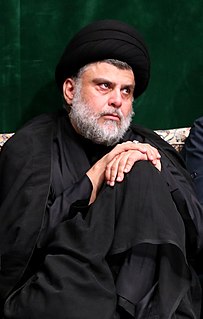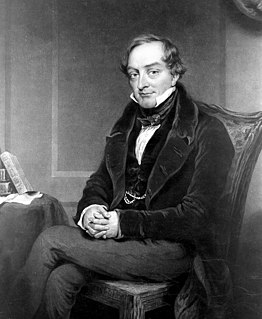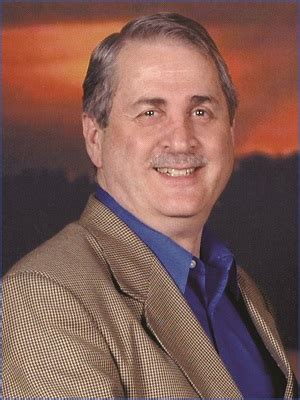A Quote by David Hume
When anyone tells me that he saw a dead man restored to life, I immediately consider with myself whether it be more probable that this person should either deceive or be deceived or that the fact which he relates should really have happened. I weigh the one miracle against the other and according to the superiority which I discover, I pronounce my decision. Always I reject the greater miracle. If the falsehood of his testimony would be more miraculous than the event which he relates, then and not till then, can he pretend to command my belief or opinion.
Quote Topics
According
Against
Always
Anyone
Belief
Command
Consider
Dead
Dead Man
Deceive
Deceived
Decision
Discover
Either
Event
Fact
Falsehood
Greater
Happened
His
Immediately
Life
Man
Me
Miracle
Miraculous
More
Myself
Opinion
Other
Person
Pretend
Probable
Pronounce
Really
Reject
Relates
Restored
Saw
Should
Superiority
Tells
Testimony
Than
Then
Till
Weigh
Whether
Which
Would
Would Be
Related Quotes
There is nothing in the nature of a miracle that should render it incredible:;: its credibility depends upon the nature of the evidence by which it is supported. An event of extreme probability will not necessarily command our belief unless upon a sufficiency of proof; and so an event which we may regard as highly improbable may command our belief if it is sustained by sufficient evidence. So that the credibility or incredibility of an event does not rest upon the nature of the event itself, but depends upon the nature and sufficiency of the proof which sustains it.
If we define a miracle as an effect of which the cause is unknown to us, then we make our ignorance the source of miracles! And the universe itself would be a standing miracle. A miracle might be perhaps defined more exactly as an effect which is not the consequence or effect of any known laws of nature.
An event is not any more intrinsically intelligible or unintelligible because of the pace at which it moves. For a man who does not believe in a miracle, a slow miracle would be just as incredible as a swift one. The Greek witch may have turned sailors to swine with a stroke of the wand. But to see a naval gentleman of our acquaintance looking a little more like a pig every day, till he ended with four trotters and a curly tail, would not be any more soothing. It might be rather more creepy and uncanny.
Do you, like a skilful weigher, put into the balance the pleasures and the pains, near and distant, and weigh them, and then say which outweighs the other? If you weigh pleasures against pleasures, you of course take the more and greater; or if you weigh pains against pains, then you choose that course of action in which the painful is exceeded by the pleasant, whether the distant by the near or the near by the distant; and you avoid that course of action in which the pleasant is exceeded by the painful.
I consider the differences between man and animals in propensities, feelings, and intellectual faculties, to be the result of the same cause as that which we assign for the variations in other functions, viz. difference of organization; and that the superiority of man in rational endowments is not greater than the more exquisite, complicated, and perfectly developed structure of his brain, and particularly of his ample cerebral hemispheres, to which the rest of the animal kingdom offers no parallel, nor even any near approximation, is sufficient to account for.
To love someone is to always see them as the miracle that they are; as the miracle that they exist, the miracle that makes your own simultaneous existence seem fortunately improbable and therefore defiantly miraculous; is to show them, in your eyes and through the way in which you look at them, the limitless beauty of their true miraculous selves; is to say to them in every glance: "I believe in miracles because i believe in you."
The miraculous is not extraordinary but the common mode of existence. It is our daily bread. Whoever really has considered the lilies of the field or the birds of the air and pondered the improbability of their existence in this warm world within the cold and empty stellar distances will hardly balk at the turning of water into wine which was, after all, a very small miracle. We forget the greater and still continuing miracle by which water (with soil and sunlight) is turned into grapes.
Rich people should consider that they are only trustees for what they possess, and should show their wealth to be more in doing good than merely in having it. They should not reserve their benevolence for purposes after they are dead, for those who give not of their property till they die show that they would not then if they could keep it any longer.
There is no learned man but will confess be hath much profited by reading controversies,--his senses awakened, his judgment sharpened, and the truth which he holds firmly established. If then it be profitable for him to read, why should it not at least be tolerable and free for his adversary to write? In logic they teach that contraries laid together, more evidently appear; it follows then, that all controversy being permitted, falsehood will appear more false, and truth the more true; which must needs conduce much to the general confirmation of an implicit truth.
The question that faces every man born into this world is not what should be his purpose, which he should set about to achieve, but just what to do with life? The answer, that he should order his life so that he can find the greatest happiness in it, is more a practical question, similar to that of how a man should spend his weekend, then a metaphysical proposition as to what is the mystic purpose of his life in the scheme of the universe.
The more sincerity is developed, the greater share of truth you will have. And however much sincerity a person may have, there is always a gap to fill, for we live in the midst of falsehood, and we are always apt to be carried away by this world of falsehood. Therefore we must never think we are sincere enough, and we must always be on our guard against influences which may carry us away from that sincerity which is the bridge between ourselves and our ideal. No study, no meditation is more helpful than sincerity itself.






































